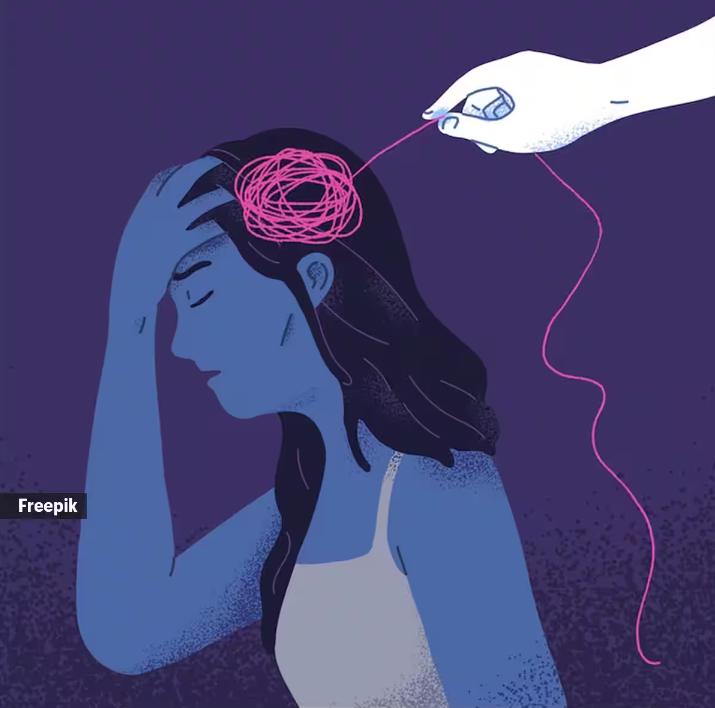In a recent interview with the Guardian, director Greta Gerwig shared her personal experience of being diagnosed with ADHD as an adult, highlighting her energetic nature as a child and shedding light on the delayed diagnosis.
Greta Gerwig, the director of the upcoming film Barbie, has revealed that she has been diagnosed with attention deficit hyperactivity disorder (ADHD).
“(At school I) had a ton of energy. Now, as an adult, I have ADHD — they diagnosed me. But as a kid, my mum was like: ‘Let’s sign her up for every activity. Let’s tire her out.’ I’ve always had a tremendous amount of enthusiasm,” she told the newspaper. “I was just interested in, like, everything. I had a really active imagination. I had a lot of really deep feelings. I was emotional.”
The 39-year-old director, who is a mother to two children with her partner Noah Baumbach, has shared that her eldest son has inherited her affinity for “high drama.”
“Occasionally he’ll have these moments of high drama. He’ll fall to the floor. He did this the other day. I wasn’t able to make him breakfast instantly, because I was feeding my three-month-old, and he fell to the floor, weeping, and said: ‘I’m having a sorely trying day. It’s already a problem,’” she explained.
She added, “I was like: ‘Oh, such drama’. But also, like: ‘Oh, that’s from me.’ That’s my level of grandiose.”
What is ADHD?

Vishnu Priya Bhagirath, a counselling psychologist, explains that ADHD is a neurodevelopmental disorder that commonly appears during childhood and can continue into adulthood. People with ADHD frequently face difficulties with attention, impulsivity, and hyperactivity, which can have an impact on their daily functioning and relationships.
Vishnu Priya Bhagirath, a counselling psychologist, points out that the causes of ADHD are multifactorial. Research indicates that individuals with ADHD may exhibit variations in brain structure and functioning, particularly in areas associated with attention and impulse control. Genetic factors play a significant role, as ADHD tends to run in families, with specific genes related to dopamine regulation and neurotransmitter functioning playing a part. Additionally, environmental factors such as prenatal exposure to toxins, premature birth, low birth weight, and early childhood adversity may contribute to an increased risk of developing ADHD.
According to Vishnu Priya Bhagirath, treatment for ADHD typically involves a multimodal approach that combines various strategies. This may include behavioral interventions, counselling, and medication in certain cases. The treatment plan should be customized to meet the specific needs of the individual and may involve collaboration with parents, teachers, and other support systems to create a consistent and supportive environment.
While ADHD cannot be entirely prevented, there are some strategies that may help reduce the risk or mitigate the severity of symptoms.
Some steps that can be taken include:
1. Maintain a healthy lifestyle: Encourage regular physical activity, a balanced diet, and sufficient sleep, as these factors can positively impact overall brain health and cognitive function.
2. Establish consistent routines: Create structured daily routines and schedules to provide a sense of stability and predictability, which can help individuals with ADHD manage their time and tasks more effectively.
3. Create a supportive environment: Foster an environment that promotes organization, clear communication, and positive reinforcement. Provide visual aids, reminders, and organizational tools to assist with task management.
4. Encourage breaks and relaxation: Allow for regular breaks and downtime to prevent overwhelm and support self-regulation. Incorporate relaxation techniques, such as deep breathing exercises or mindfulness practices, to help manage stress and improve focus.
5. Seek early intervention: If you notice signs or symptoms of ADHD in yourself or your child, consult with a healthcare professional or mental health specialist for an accurate diagnosis and appropriate intervention. Early intervention can help address challenges and provide the necessary support.
It is important to remember that each individual is unique, and what works for one person may not work for another. Consulting with healthcare professionals or specialists can provide personalized guidance and support based on individual needs.











